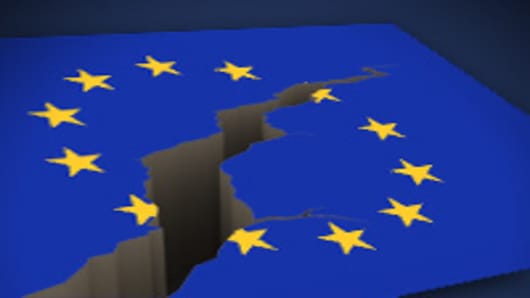When a central bank buys an asset, it is injecting new money into the economy. The money supply expands by the size of the asset purchase. It’s a monetary operation—not an investment.
When the bonds mature and Greece pays back the ECB, that money is essentially extinguished.
If the ECB wants to keep the money supply steady, it will have to find a new channel to inject the funds repaid by Greece. It could do so by buying, for example, Spanish bonds.
If the ECB doesn’t engage in a new round of bond purchases, it effectively tightens the money supply.
Since the ECB bought that Greek bonds at a discount—the exact figures are unknown, but I’m told somewhere around 70 cents on the euro—there’s an extra bit of monetary tightening built into a 100 percent repayment.
Let’s say the ECB bought Greek bonds with a face value of 40 billion euro at a 30 percent discount. So it paid 28 billion euros. If Greece repays 40 billion, the money supply doesn’t just go back to what it was before the bond buying. It shrinks by an additional 12 billion euros.
In a sense, the ECB will have made a profit of 12 billion euros. But when central banks “profit” they are really tightening monetary policy, unless they have a way of re-injecting the funds into the economy. Our own central hands profits over to the U.S. Treasury, which then spends the money back into the economy. The ECB lacks an equivalent way to spend the money because there’s no eurozone equivalent of the U.S. Treasury. So it’s profits definitely tighten the money supply, unless it engages in another round of quantitative easing by buying more bonds.
I’m not even sure the ECB understands this.
Questions? Comments? Email us atNetNet@cnbc.com
Follow John on Twitter @ twitter.com/Carney
Follow NetNet on Twitter @ twitter.com/CNBCnetnet
Facebook us @ www.facebook.com/NetNetCNBC



